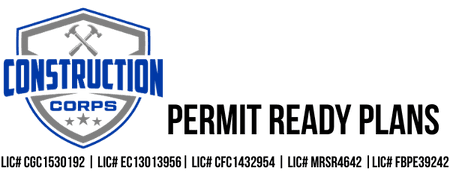Zoning Consultation Services in Clearwater: What You Need to Know Before Starting Your Project
Understanding Zoning Consultation Services
Embarking on a new construction or development project in Clearwater requires careful planning and understanding of local regulations. One critical aspect of this process is zoning. Zoning laws are designed to regulate land use and ensure that development projects align with the community's vision and standards. Engaging in zoning consultation services can be invaluable, helping you navigate these complex regulations and ensuring your project's success.

The Importance of Zoning Regulations
Zoning regulations are established to balance the needs of the community with development activities. They help maintain property values, promote sustainable growth, and protect natural resources. By categorizing land into zones, such as residential, commercial, or industrial, these laws specify what types of structures can be built and what activities can occur in each area.
Ignoring zoning laws can lead to significant setbacks, including fines, delays, or even the necessity to alter or halt a project. Engaging a professional zoning consultant early in your planning phase can save you time and money by ensuring compliance with local regulations.
What to Expect from Zoning Consultation Services
Zoning consultation services offer expert guidance throughout your development project. These professionals have in-depth knowledge of Clearwater's zoning codes and can provide valuable insights tailored to your specific project needs. Here's what you can expect:
- Site Analysis: Assessing the land use regulations and determining the feasibility of your project.
- Regulatory Guidance: Understanding the specific zoning requirements applicable to your project.
- Permit Assistance: Navigating the permit application process for faster approval.
- Community Engagement: Facilitating communication with local authorities and stakeholders.

Steps to Take Before Starting Your Project
Before diving into your development project, there are several steps you should take to ensure everything is in order. Proper preparation can streamline the process and mitigate potential issues:
- Research Zoning Laws: Familiarize yourself with Clearwater’s zoning codes relevant to your project.
- Consult with Experts: Engage a zoning consultant to gain professional insights and advice.
- Prepare Documentation: Gather necessary documents such as site plans and property deeds.
- Communicate with Authorities: Establish a line of communication with local zoning officials for guidance.
The Role of Community in Zoning Decisions
Zoning decisions often involve community input, making it essential to understand local concerns and expectations. A well-prepared presentation on how your project aligns with community goals can foster positive relations and support. Public meetings or forums are common platforms where developers can share plans and gather feedback from residents.

Choosing the Right Zoning Consultant
With so much at stake, selecting the right zoning consultant is crucial. Look for professionals with a proven track record in Clearwater, who understand local regulations and have experience managing projects similar to yours. References and client testimonials can provide insights into their expertise and reliability.
A good consultant will not only help you comply with zoning laws but also optimize your project's potential by identifying opportunities for innovation within regulatory frameworks.
Conclusion
Zoning consultation services are an essential component of successful development projects in Clearwater. By understanding and adhering to zoning laws, you ensure that your project progresses smoothly while contributing positively to the community. Investing in professional guidance early on can save time, resources, and prevent future complications. As you plan your next project, remember that compliance is not just a requirement—it's an opportunity to build responsibly and sustainably.
